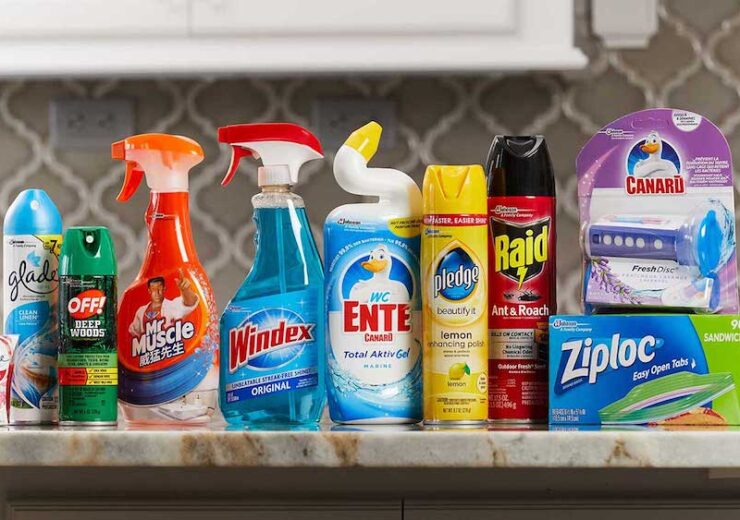To help tackle plastic waste, SC Johnson is looking to triple the amount of post-consumer recycled (PCR) plastic content in its packaging by 2025

Products that SC Johnson produce include Mr Muscle and Glade (Credit: SC Johnson)
SC Johnson is making “significant progress” toward its 2025 targets to tackle plastic pollution.
The work the company, which is one of the world’s leading manufacturers of household cleaning products, is doing was highlighted in the Ellen MacArthur Foundation’s second annual report on the New Plastics Economy Global Commitment.
This is a set of targets uniting more than 450 businesses, governments and other organisations to address plastic waste and pollution.
SC Johnson chairman and CEO Fisk Johnson said: “SC Johnson teams are continuing to create products and packaging that give consumers more sustainable options.
“We all have a responsibility to address this critical environmental issue, but equally none of us can solve this challenge alone.
“It will take a unified effort from business, government and civil society to create a circular plastic economy.”
SC Johnson to accelerate its progress to tackle plastic waste
The New Plastics Economy report shows that although progress has been made in some areas between 2018 and 2019, more needs to be done in order to achieve the 2025 targets.
In association with this, SC Johnson is pursuing a series of goals to accelerate its progress to tackle plastic waste including tripling the amount of post-consumer recycled (PCR) plastic content in packaging by 2025.
Currently, 14% of the firm’s packaging is PCR, up from 6% from last year.
It’s also looking to continue to remove excess plastics wherever possible, with the company eliminating 2,575 metric tonnes of unnecessary or problematic plastic packaging since 2018, including 875 metric tonnes since last year.
Alongside this, it wants to make 100% of its plastic packaging recyclable, reusable or compostable by 2025 – currently, more than 62% of SC Johnson products are designed for this.
The company is also expanding concentrated refill options and refill trials with Ecover through the UK-based Waitrose and Sainsbury’s supermarkets.
In addition, it will continue to work with industry and other organisations to support circular plastic economy models and keep plastic out of landfills and the environment.
Part of this is SC Johnson’s global partnership with Plastic Bank, which has collected more than 5,000 metric tonnes of plastic and is being incorporated into product packaging as an alternative to virgin plastic.
